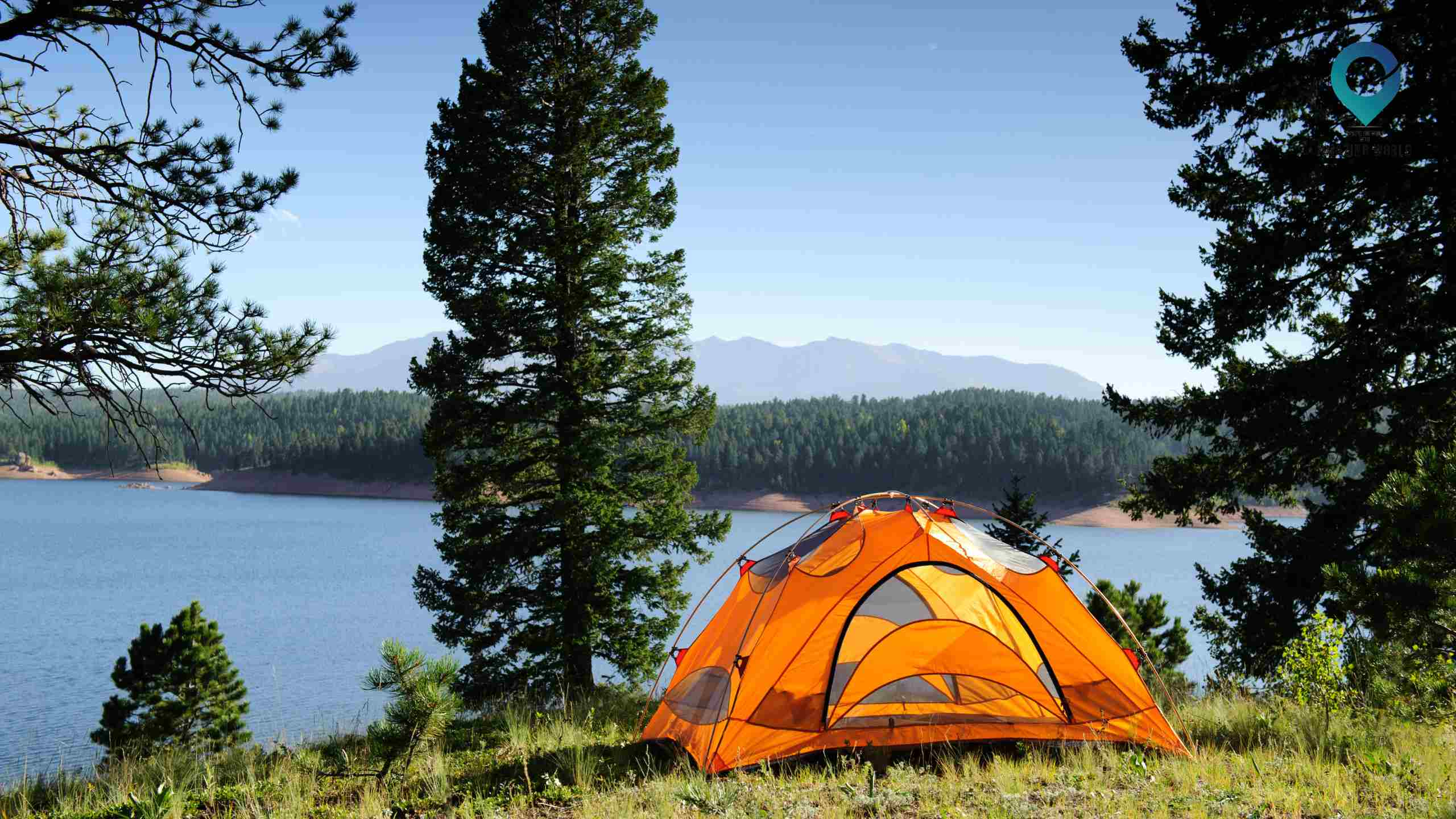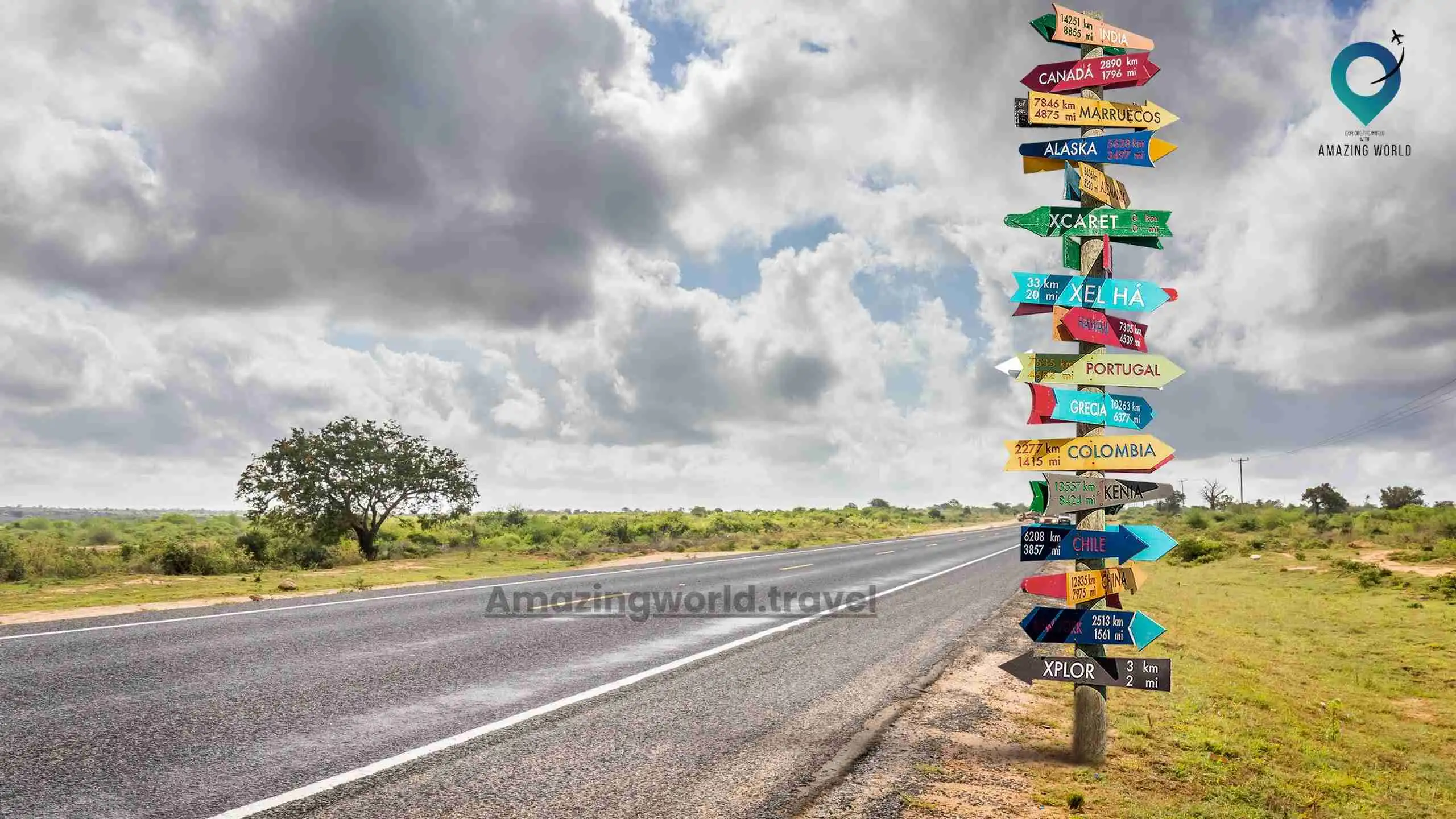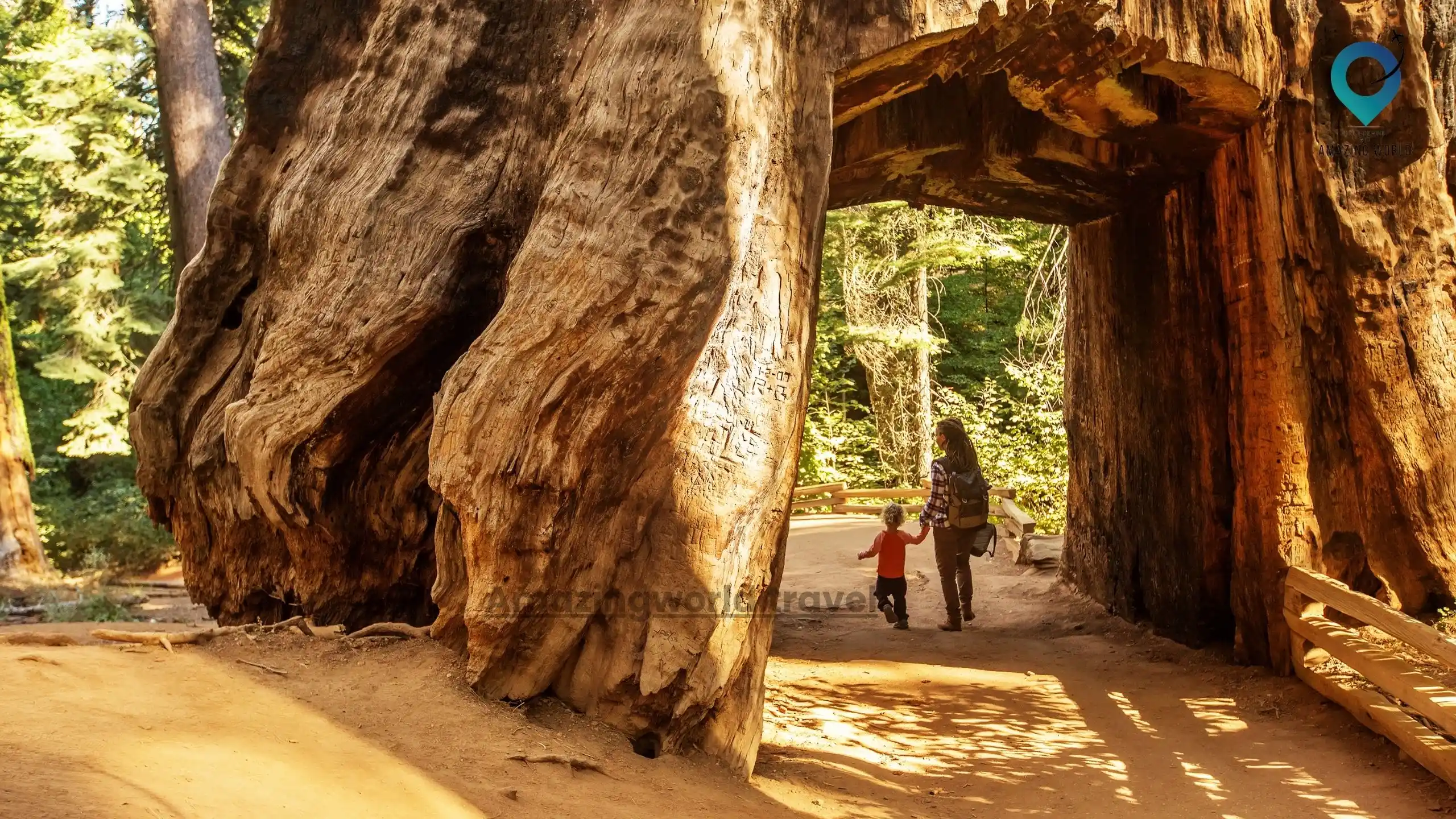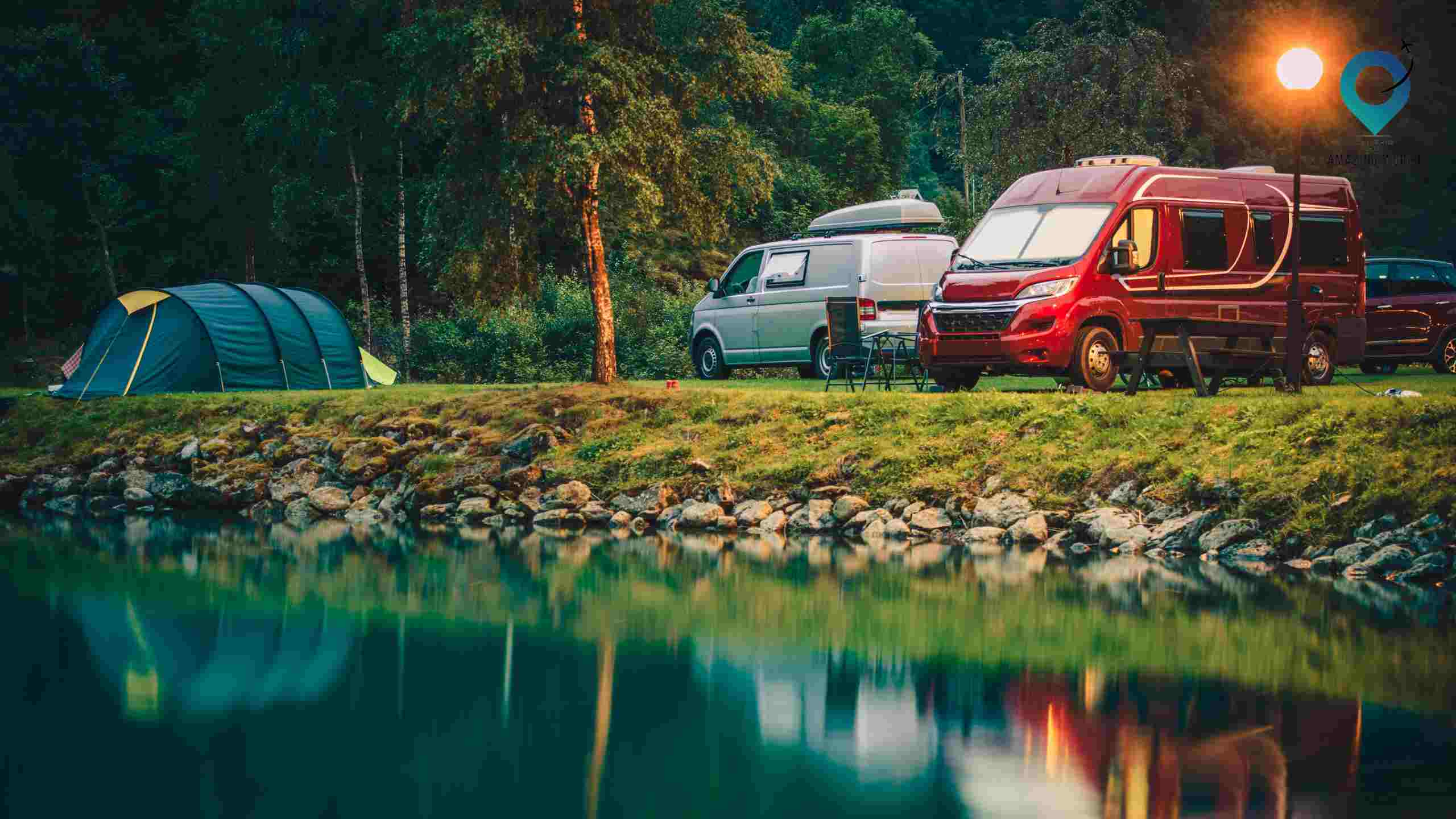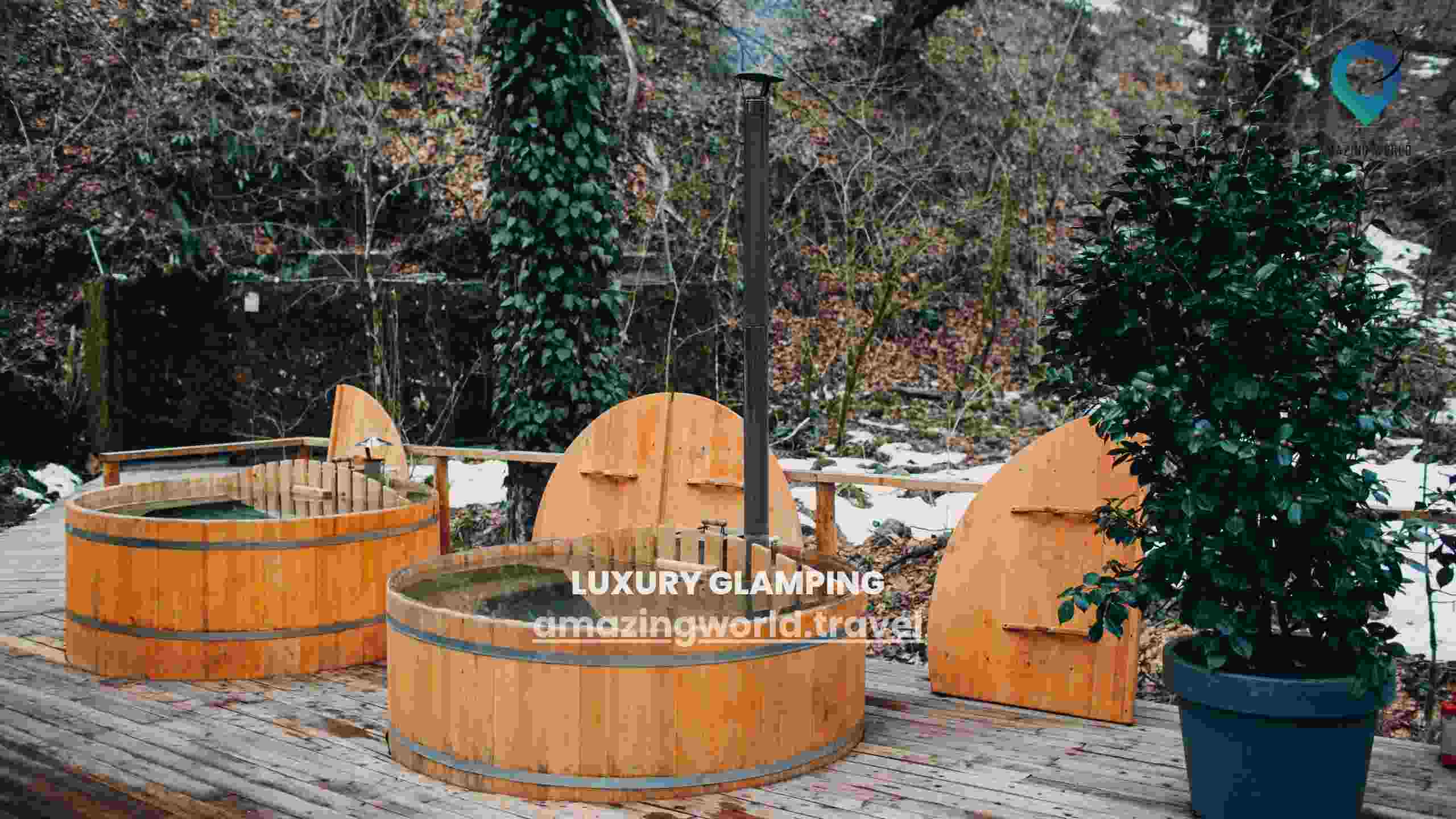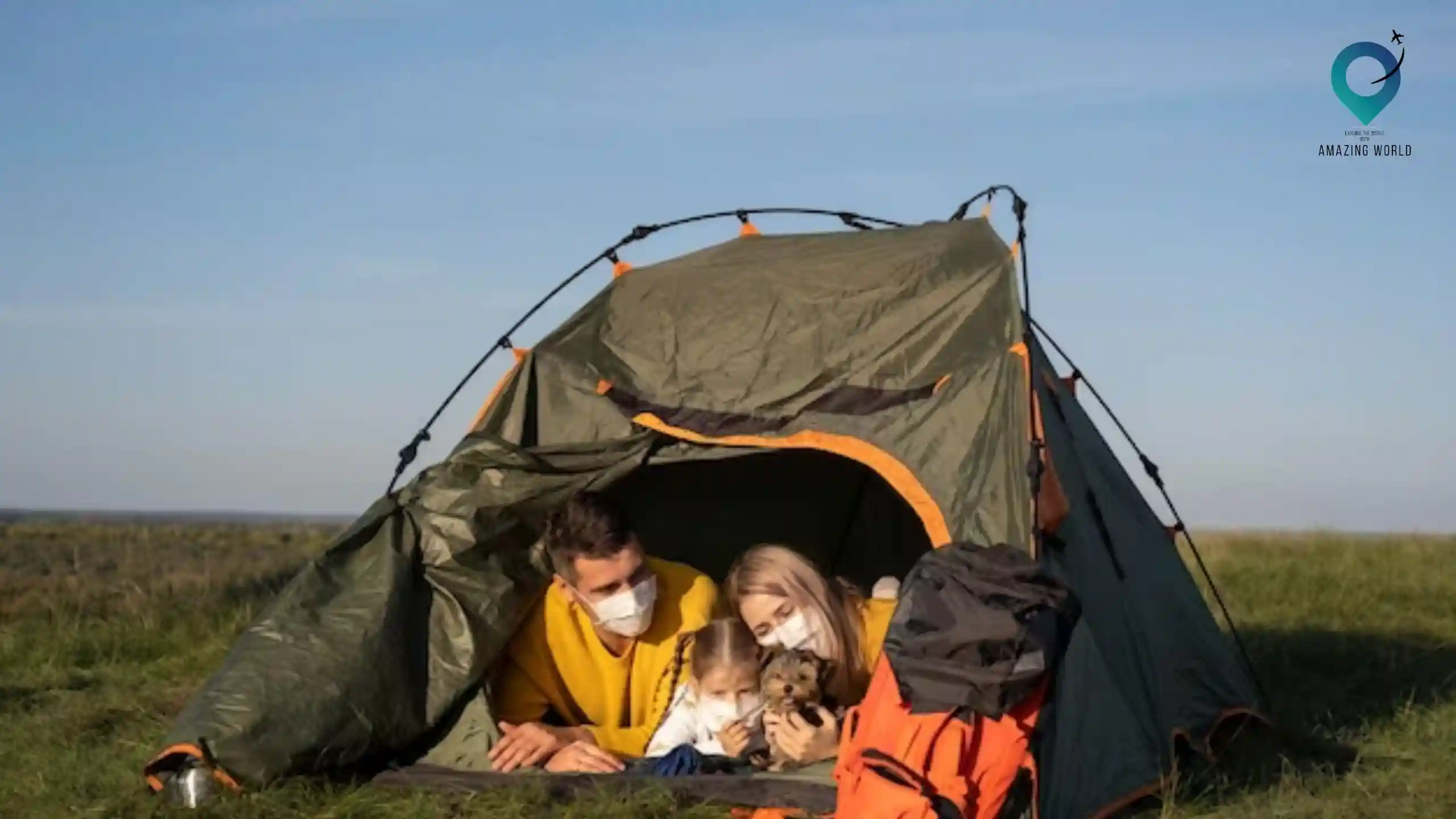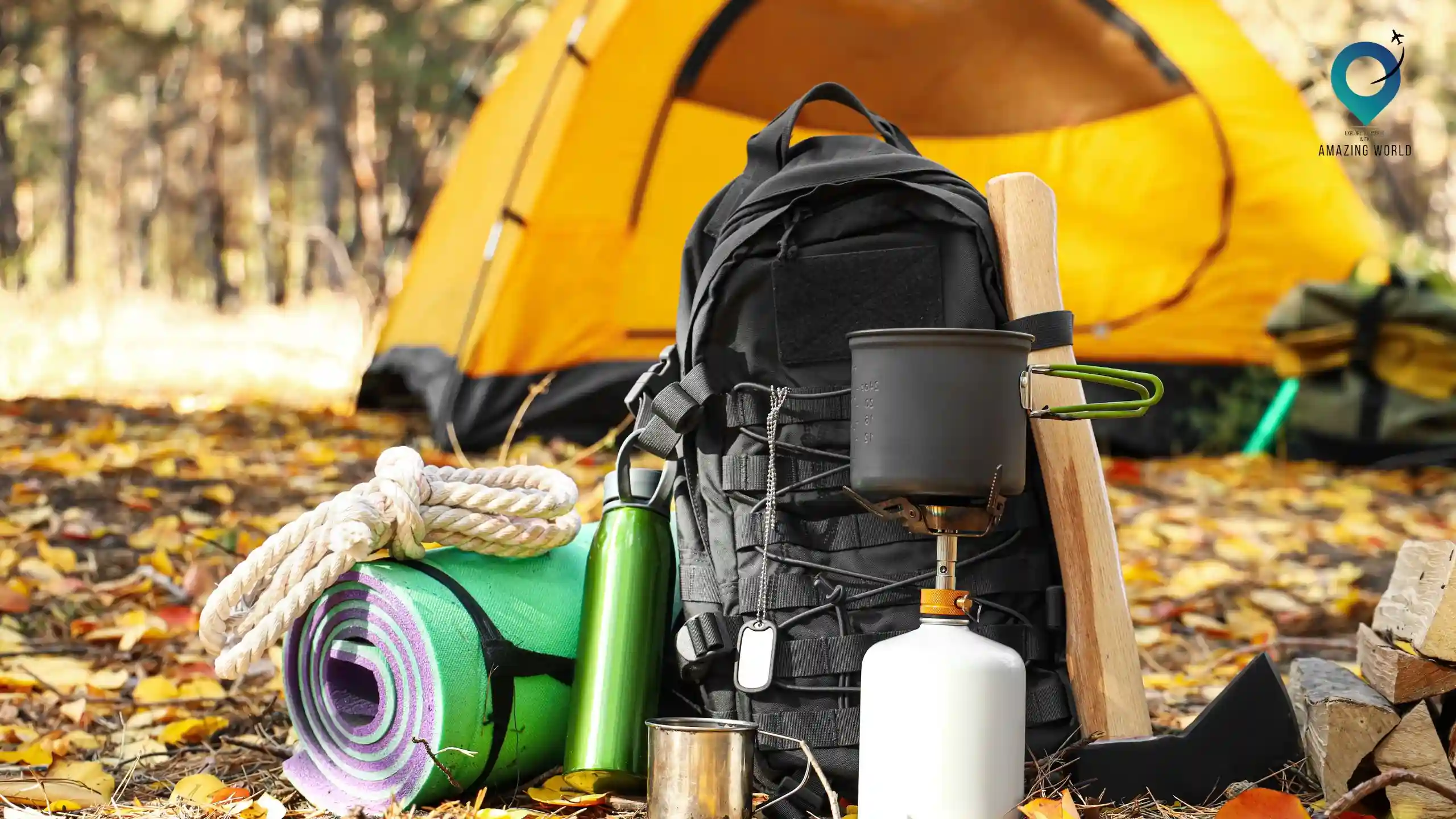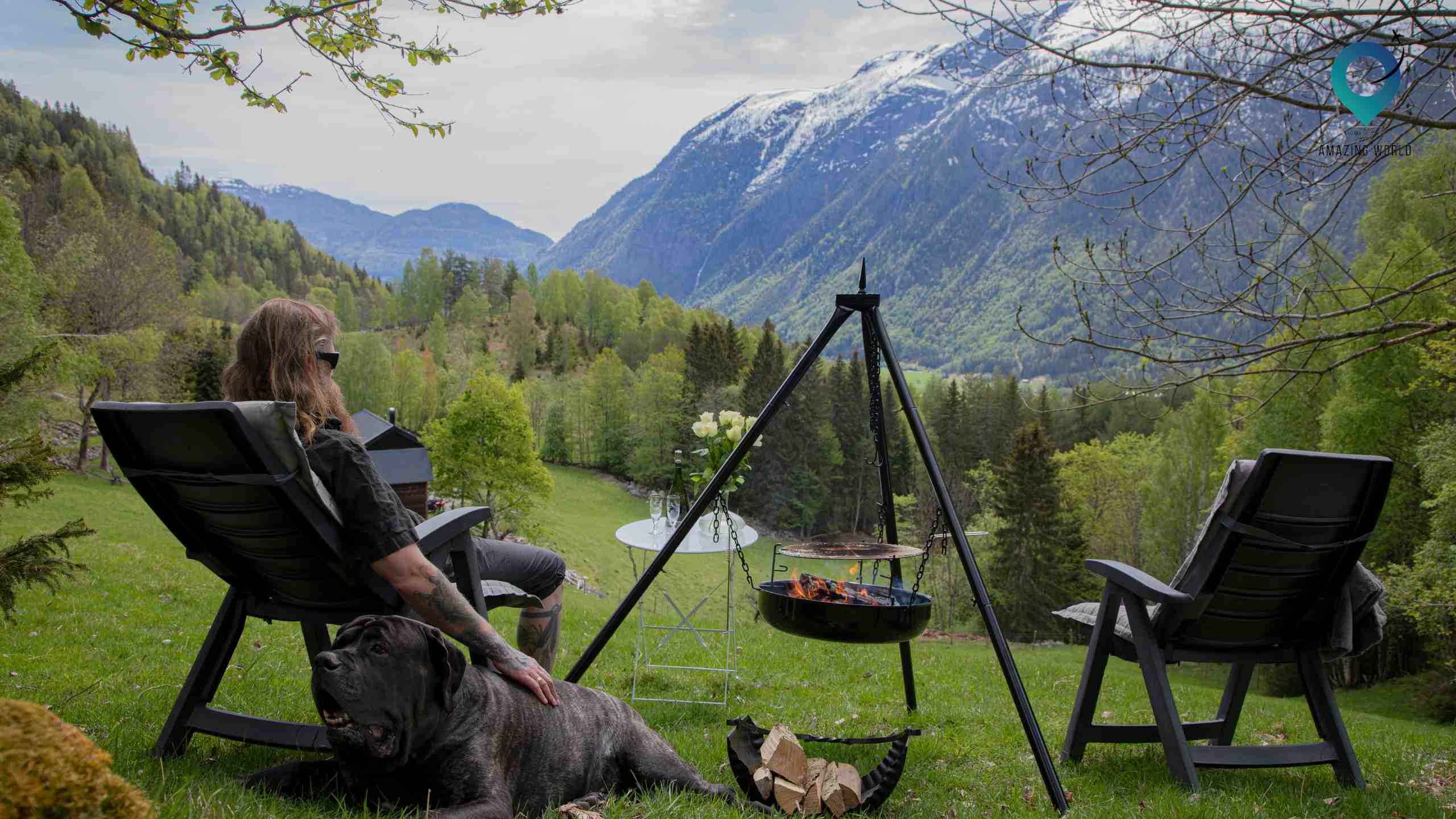Benefits of Camping | Why Camping Is Good for You
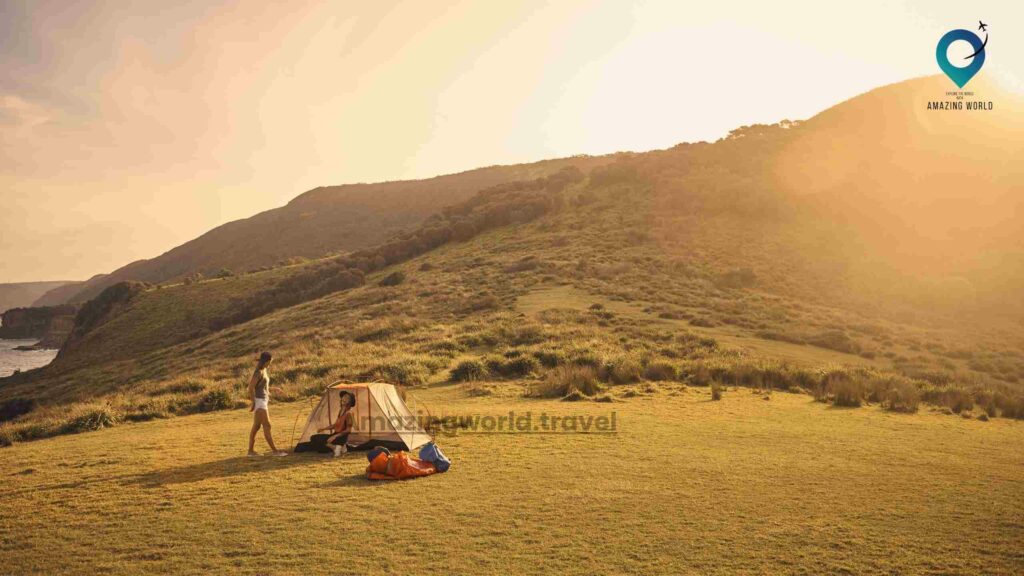
Are you seeking an exciting adventure that refreshes your mind and body? Camping offers the perfect escape from the digital world, a chance to spend quality time with loved ones, and an opportunity to connect with nature.
In this guide, we’ll explore how camping benefits you, from staying active and being more creative to bonding with others and feeling less stressed. Whether you’re a seasoned camper or new to it, there’s something for everyone.
So, pack your gear, leave the screens behind, and let’s explore the world of camping, where adventure and peace come together, and where lasting memories are waiting to be created.
1. Physical Fitness
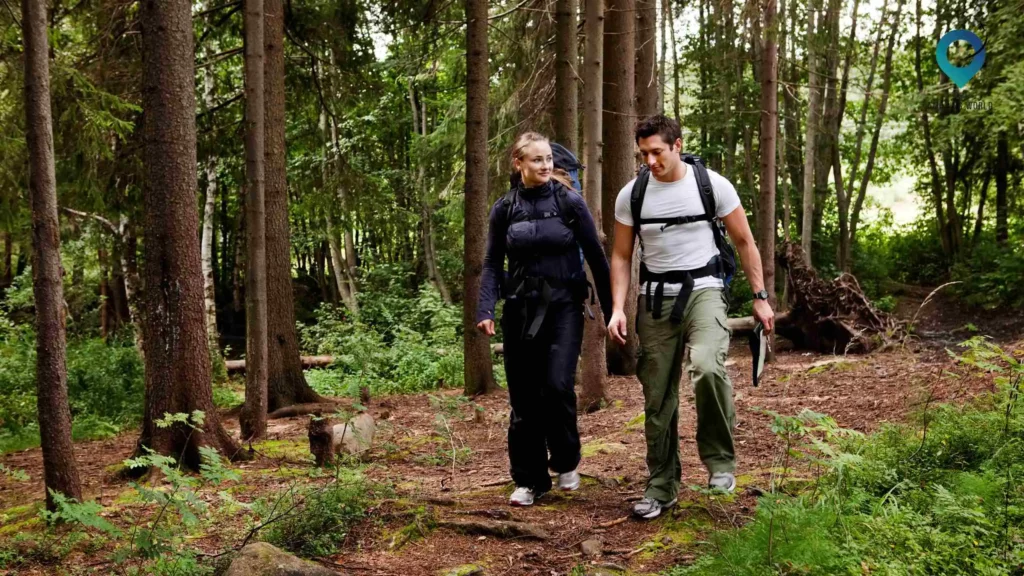
Camping offers a unique opportunity to improve physical fitness in a natural and enjoyable way. Here’s a detailed breakdown of how camping contributes to your physical well-being:
Hiking and Exploring: When you venture into the wilderness for a camping trip, you’re not merely setting up a campsite and lounging around. You’re stepping into an outdoor gym where hiking and exploration are your exercises. Here’s why this matters:
- Cardiovascular Workout: Hiking involves walking long distances over varying terrains. This sustained physical activity elevates your heart rate, promoting cardiovascular health. It helps enhance your heart’s efficiency and increases lung capacity. As you tackle different trails, you progressively build endurance, allowing you to handle more extended, challenging hikes.
- Leg Strength: Uphill climbs, downhill descents, and navigating uneven surfaces during hikes engage the muscles in your legs intensively. Your quadriceps, hamstrings, and calf muscles work together to power you through the journey. This not only tones your lower body but also strengthens it, making it more resilient.
- Improved Balance and Coordination: Camping often involves crossing streams, stepping over rocks, and maneuvering through diverse and sometimes tricky landscapes. These activities challenge your balance and coordination. Your body learns to adapt to different surfaces and conditions, improving your agility and stability.
- Core Workout: Carrying a backpack loaded with camping gear, including a tent, sleeping bag, and supplies, adds resistance to your movements. This resistance prompts your core muscles (including your abdominal and back muscles) to engage actively. They work to stabilize your body as you move, effectively giving you a core workout.
- Enhanced Flexibility: Camping naturally encourages a range of motions. You might find yourself bending down to pick up firewood, stretching to reach items in your backpack, or simply reaching for objects in your campsite. These movements promote flexibility and help prevent stiffness in your joints and muscles.
- Full-Body Exercise: Camping activities extend beyond hiking. Setting up tents, gathering firewood, preparing meals over an open flame, and even chopping wood for a campfire engage various muscle groups. This results in a full-body workout, which can help you build overall strength and muscle tone.
Endurance Enhancement: Camping isn’t just about short bursts of physical activity; it often involves prolonged walking, hiking, and exploration. These extended activities gradually improve your endurance. Over time, as you tackle more extended and challenging treks, your stamina increases, allowing you to take on more physically demanding adventures.
Calorie Burner: Camping is an excellent way to burn calories without even realizing it. Tasks like gathering firewood, setting up tents, and preparing meals over an open flame require energy expenditure. These activities can contribute to calorie burning, making camping a refreshing departure from sedentary routines.
Mental Refreshment: While it’s not directly related to physical fitness, the mental refreshment you gain from camping can indirectly impact your physical well-being. Taking a break from daily stressors can rejuvenate your mind, making you more motivated to stay physically active.
Opportunities for Various Activities: Depending on your camping location, you might have access to a wide range of physical activities such as swimming, fishing, or kayaking. These activities provide not only a fun way to stay active but also diversify your workout routine, ensuring you engage different muscle groups and stay mentally engaged in your fitness journey.
A Natural Gym: Think of the great outdoors as your natural gym. You don’t need fancy exercise machines when you have rocks to climb, trails to hike, and rivers to cross. Nature offers a dynamic and ever-changing fitness landscape, making every camping trip a unique and rewarding fitness adventure.
2. Stress Reduction
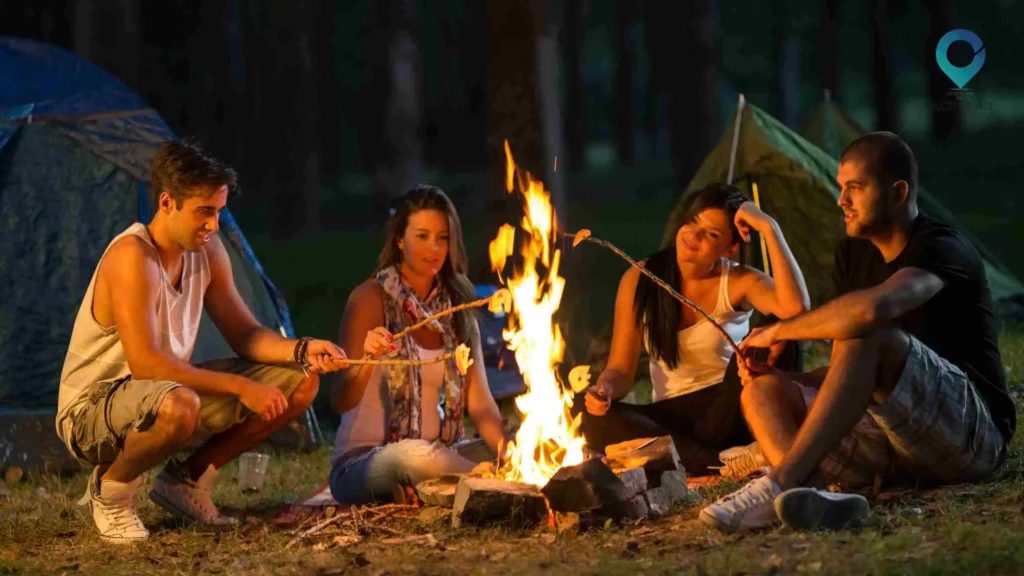
Camping offers a natural escape from the demands and stressors of daily life. It provides an environment where stress naturally recedes, and here’s why:
Disconnecting from Daily Life: Camping takes you away from the hustle and bustle of everyday life, away from ringing phones, emails, and traffic jams. This escape is essential for stress reduction. It’s like hitting a reset button for your mind.
Nature’s Calming Effect: Being surrounded by nature has a profound calming effect on the human psyche. The sights and sounds of the natural world—birdsong, rustling leaves, flowing rivers—can soothe frayed nerves and lull you into a state of relaxation.
Minimal Distractions: Camping often means fewer distractions. You won’t find the constant buzz of electronic devices or the noise pollution of urban living. This peaceful environment allows your mind to unwind, reducing the stress hormone cortisol.
Meditation and Mindfulness: Camping encourages mindfulness and meditation almost effortlessly. In this tranquil setting, you can immerse yourself in the present moment. Listening to the gentle rustling of leaves or gazing at the starry night sky can be incredibly soothing and meditative.
Time in Natural Light: Camping means ample time outdoors, bathed in natural light. Exposure to natural light is known to boost mood and reduce stress. Sunlight triggers the production of serotonin, a neurotransmitter often called the “feel-good” hormone, which can help elevate your mood.
Digital Detox: One of the most significant contributors to modern stress is our constant connection to screens and digital devices. Camping often involves a digital detox—leaving smartphones and tablets behind or at least using them minimally. This break from constant notifications and screen time can significantly reduce anxiety and stress levels.
Simplicity and Unplugging: Camping strips away the complexity of modern life. You cook over an open fire, sleep in a tent, and live with fewer possessions. This return to simplicity can remind you of life’s basic pleasures, reducing stress that often arises from the constant pursuit of material comforts and digital interactions.
Connection to Nature: Perhaps the most powerful stress-reduction factor of camping is the connection to nature itself. Nature has an innate ability to calm the mind. The vastness of the outdoors and the sense of being a part of it all can put life’s worries into perspective.
3. Improved Mood
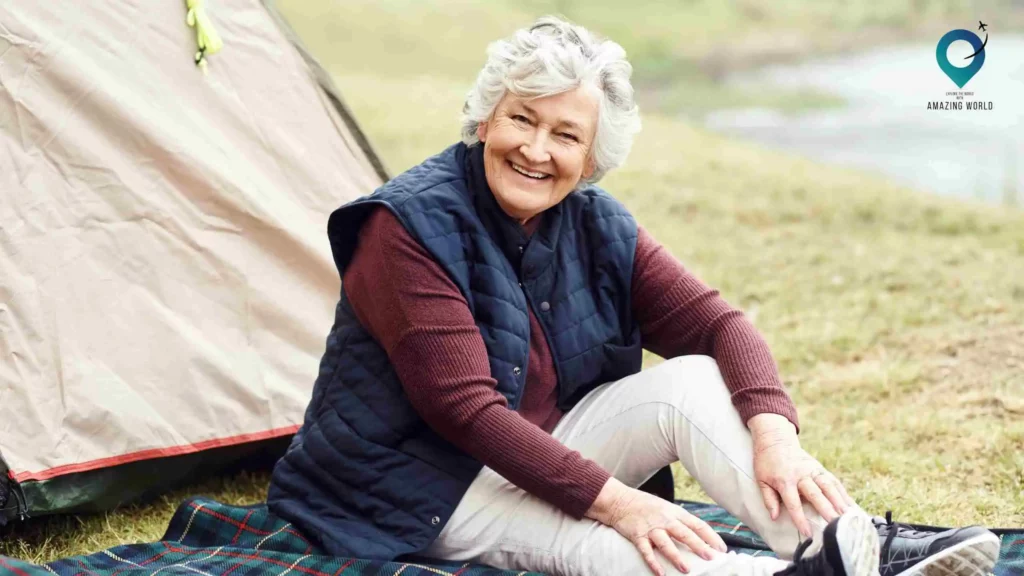
Camping has a remarkable impact on your mood, leaving you feeling more positive and energized. Here’s how:
Sunshine and Serotonin: Exposure to natural light during camping is a mood enhancer. Sunlight triggers the production of serotonin; a neurotransmitter often called the “feel-good” hormone. When serotonin levels are higher, you tend to feel more content and cheerful.
Digital Detox: Camping often means disconnecting from screens and digital devices. This break from constant notifications and the online world can reduce anxiety and improve your overall mood. It’s like taking a step back from the pressures of the digital age.
Adventure and Excitement: The sense of adventure that comes with camping can be exhilarating. Trying new activities like rock climbing, kayaking, or exploring unfamiliar terrain can give you an adrenaline rush. This excitement not only lifts your spirits but also boosts your energy levels.
Reconnecting with Simplicity: Camping simplifies life. You cook over a campfire, sleep under the stars, and live with fewer possessions. This return to simplicity can remind you of life’s basic pleasures and reset your perspective. It can help you appreciate the little things, which often leads to a happier outlook.
Mindfulness and Being Present: Camping encourages mindfulness—being fully present in the moment. Whether you’re watching a mesmerizing sunset, listening to the rustling leaves, or stargazing by the campfire, you become acutely aware of your surroundings. This heightened sense of mindfulness can lead to a sense of contentment and tranquility.
Connection with Nature: One of the most potent mood-enhancing aspects of camping is the profound connection with nature. Nature has an innate ability to calm the mind and soothe the soul. The vast landscapes, pristine wilderness, and the feeling of being a part of it all can elicit a deep sense of joy and wonder.
Quality Time: Camping often involves spending quality time with loved ones—family, friends, or even yourself. These meaningful connections and shared experiences can foster positive emotions and create lasting memories, contributing to an overall sense of happiness.
Break from Routine: The break from your everyday routine that camping provides can be incredibly refreshing. It’s a chance to step out of the mundane and explore new horizons. This change of scenery can invigorate your spirit and leave you feeling more optimistic.
4. Better Sleep
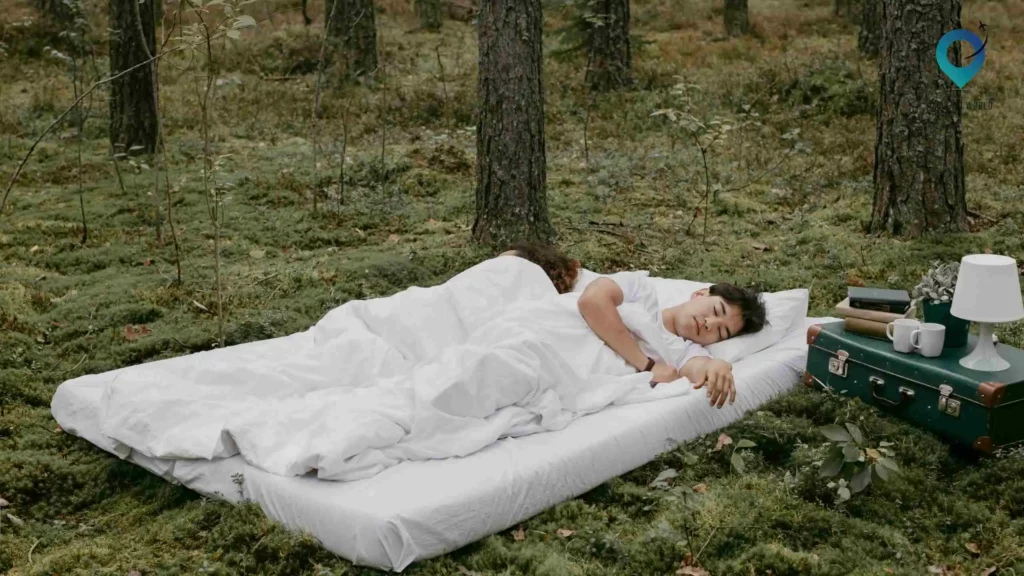
Camping often leads to improved sleep quality. Here’s how:
Exposure to Natural Light: Camping immerses you in natural light, and this has a significant impact on your sleep-wake cycle. Exposure to daylight helps regulate your body’s internal clock, known as the circadian rhythm. When your circadian rhythm is in sync with natural light patterns, you tend to sleep better at night.
Resetting Your Internal Clock: Spending a day in natural light and darkness while camping can help reset your internal clock, particularly if you’ve been exposed to artificial light and screens for extended periods. This reset can improve your sleep patterns and make it easier to fall asleep and wake up at the right times.
Reduced Exposure to Artificial Light: Camping typically involves fewer artificial lights, especially at night. This reduction in light pollution benefits your sleep quality. Your body produces melatonin, a hormone that regulates sleep, in response to darkness. Less artificial light means your melatonin production isn’t disrupted, promoting better sleep.
Sound of Nature: Falling asleep to the soothing sounds of nature, whether it’s the rustling leaves, chirping crickets, or the distant hoot of an owl, can be incredibly relaxing. These natural sounds create a calming environment conducive to sleep.
Fresh Air and Ventilation: Camping often means sleeping in well-ventilated conditions. Whether you’re in a tent with open windows or sleeping under the stars, you benefit from fresh, clean air. Good ventilation can help you breathe better and prevent stuffiness, ensuring a more comfortable night’s sleep.
Comfortable Sleeping Surfaces: Camping gear has come a long way in terms of comfort. Modern sleeping bags, sleeping pads, and camping mattresses provide excellent support and insulation from the ground, making your sleeping surface more comfortable. This can significantly enhance your sleep quality.
Reduced Exposure to Screens: Camping encourages a break from screens and digital devices. The blue light emitted by screens can interfere with your sleep by suppressing melatonin production. Camping helps you unwind without the usual distractions and screen-related sleep disruptions.
Physical Activity: Camping often involves physical activities during the day, whether it’s hiking, swimming, or setting up camp. Engaging in these activities can make you physically tired by bedtime, which can lead to a deeper and more restful sleep.
Stress Reduction: As mentioned earlier, camping reduces stress. Lower stress levels can lead to better sleep, as stress and anxiety are common causes of sleep disturbances.
5. Vitamin D Boost

Camping provides an excellent opportunity to soak up the sun and boost your vitamin D levels, which has numerous health benefits:
Sunlight as a Natural Source: Sunlight is a natural source of vitamin D. When your skin is exposed to sunlight, it produces vitamin D. Camping, with its outdoor setting and extended periods of sun exposure, allows you to naturally synthesize this essential vitamin.
Stronger Bones: Vitamin D is crucial for maintaining healthy bones as it helps the body absorb calcium. Calcium is essential for strong bones and teeth. By getting enough vitamin D through camping, you contribute to bone health and reduce the risk of conditions like osteoporosis.
Immune System Support: Vitamin D plays a vital role in supporting the immune system. It helps your body fight off infections and diseases. Adequate vitamin D levels can contribute to a stronger immune system, which is especially important when spending time outdoors in varying environments.
Mood Regulation: Vitamin D is linked to mood regulation, and its deficiency has been associated with mood disorders such as depression and seasonal affective disorder (SAD). Camping, with its exposure to natural light and the subsequent increase in vitamin D production, can positively impact your mood.
Reduced Risk of Chronic Diseases: Adequate vitamin D levels are associated with a reduced risk of chronic diseases such as heart disease, diabetes, and certain cancers. Camping provides a natural way to maintain or improve your vitamin D status, potentially lowering your risk of these conditions.
Enhanced Cognitive Function: Some research suggests that vitamin D may play a role in cognitive function and brain health. While camping, increased sun exposure can contribute to improved cognitive function, helping you stay alert and focused during your outdoor adventures.
Skin Health: Vitamin D also supports skin health. It can help maintain healthy skin, reduce the risk of skin issues, and promote a more youthful appearance. While you should always use sunscreen to protect your skin from harmful UV rays, controlled sun exposure during camping can benefit your skin.
Weight Management: Some studies have suggested a potential link between vitamin D levels and weight management. Adequate vitamin D may help with weight loss and maintenance. Camping activities often involve physical exertion, which can complement weight management efforts.
Overall Well-Being: The combination of fresh air, physical activity, and increased vitamin D production during camping contributes to an overall sense of well-being. You’ll likely feel more energized and healthier when you return from your camping adventure.
6. Enhanced Creativity
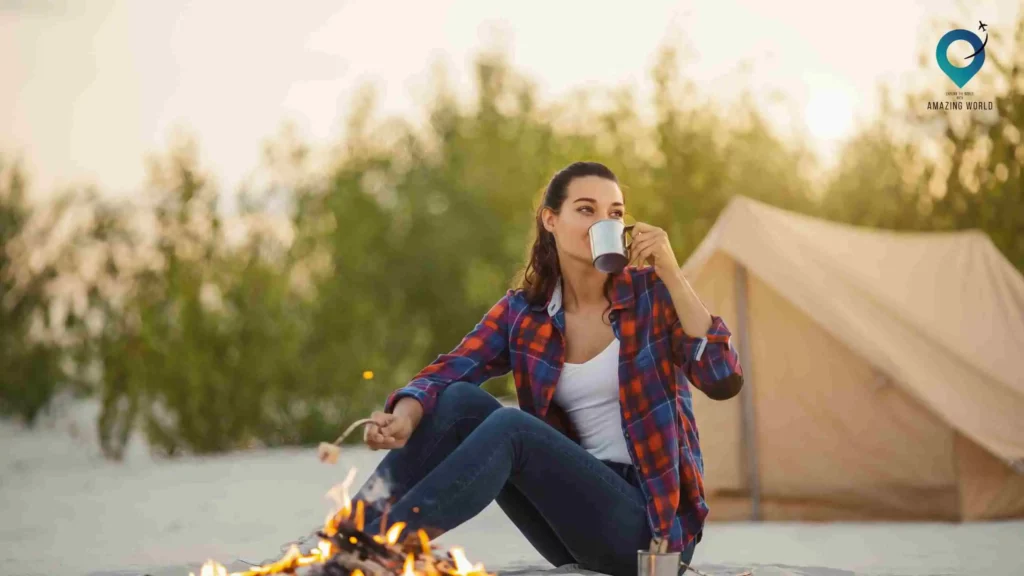
Camping provides an environment that can boost your creativity and inspire your imagination in several ways:
Natural Inspiration: Being surrounded by nature’s beauty can stimulate your creativity. The breathtaking landscapes, from lush forests to pristine lakes and towering mountains, serve as an endless source of inspiration. The colors, textures, and patterns found in nature can spark creative ideas.
Mindful Observation: Camping encourages mindfulness—being fully present in the moment. When you immerse yourself in the sights, sounds, and sensations of the outdoors, you become more attuned to your surroundings. This mindful observation can help you notice details and patterns that might inspire artistic or creative endeavors.
Unplugging from Technology: Camping often involves disconnecting from technology and screens. This digital detox gives your mind a break from constant information overload and distractions. It provides space for your creativity to flourish without the interruptions of emails, social media, or notifications.
Space for Reflection: Camping offers a quiet and serene environment where you can reflect and let your thoughts flow freely. Without the usual hustle and bustle of daily life, you can focus on your creative projects, whether it’s writing, painting, photography, or simply brainstorming ideas.
Simplicity and Minimalism: Camping simplifies your lifestyle. You have fewer possessions and amenities, which can inspire minimalistic thinking. This shift towards simplicity often leads to creative problem-solving and innovative solutions to everyday challenges.
New Perspectives: Changing your environment and routines through camping can provide new perspectives and fresh ideas. Breaking away from the familiar can stimulate your brain and help you see things from different angles, leading to creative breakthroughs.
Quality Time for Creativity: Camping often involves periods of relaxation by the campfire or under the stars. These moments provide quality time for creative pursuits. You can use this time to write in a journal, sketch, or engage in other creative hobbies.
Bonding and Collaborating: Camping with friends or family can foster bonding and collaboration. Sharing stories, playing games, and working together on camp activities can inspire collective creativity and innovative thinking.
Opportunities for Adventure: Camping often includes adventurous activities like hiking, exploring, and trying new things. These experiences can provide thrilling stories and unique encounters that fuel your creative projects.
7. Connection with Nature
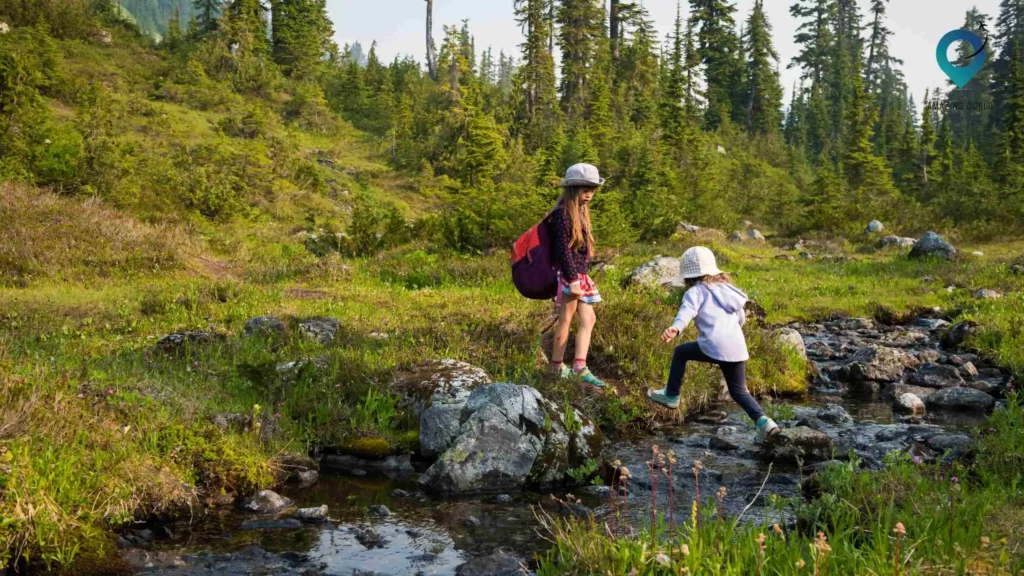
Camping provides a profound opportunity to connect with nature in ways that are often elusive in our daily lives:
Immersive Experience: Camping immerses you in the natural world. Instead of merely observing nature from a distance, you become a part of it. This immersive experience can foster a deep sense of connection and appreciation for the environment.
Environmental Awareness: Being in nature during a camping trip heightens your awareness of the environment. You become more attuned to the intricacies of ecosystems, the interdependence of species, and the impact of human activities on nature. This heightened environmental consciousness can inspire eco-friendly behaviors.
Stress Reduction: Nature has a calming effect on the human mind. The sights and sounds of the natural world, such as a babbling brook or a rustling forest, can reduce stress and promote relaxation. Camping provides an extended period of exposure to these stress-reducing elements.
Physical Engagement with Nature: Camping often involves physically engaging with nature, whether it’s hiking through forests, swimming in lakes, or kayaking down rivers. These activities allow you to experience the natural world in a tangible way, deepening your connection.
Appreciation for Natural Beauty: Camping exposes you to breathtaking natural beauty, from starry night skies unspoiled by city lights to picturesque sunrises over mountain peaks. These awe-inspiring moments cultivate a profound appreciation for the beauty of the natural world.
Respect for Nature: Spending time in nature during camping can instill a sense of respect and responsibility for the environment. When you witness the fragility of ecosystems and the impact of human activities, you’re more likely to adopt eco-friendly practices in your daily life.
Stimulating the Senses: Nature engages all your senses. The scent of pine trees, the feel of cool river water, the taste of campfire-cooked meals, and the sound of birdsong—all these sensory experiences connect you to the world around you.
Nurturing Curiosity: Camping can nurture curiosity about the natural world. You may find yourself asking questions about the plants, animals, and geological formations you encounter. This curiosity can lead to a deeper understanding and appreciation of nature.
Time for Reflection: Camping provides ample time for reflection. As you sit by the campfire or gaze at the stars, you may contemplate your place in the natural world and the interconnectedness of all living beings.
8. Unplugging from Technology
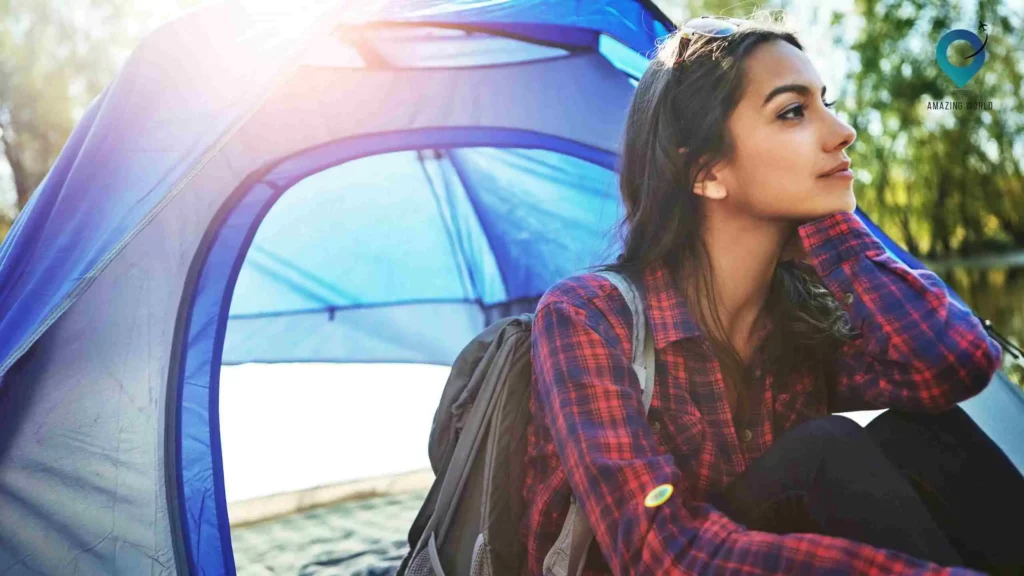
Camping provides a much-needed break from the constant digital connection of modern life:
Disconnecting from Screens: Camping often involves leaving behind or significantly reducing the use of electronic devices. This disconnection from screens, including smartphones, tablets, and computers, allows you to break free from the constant distractions and notifications of the digital world.
Reduced Information Overload: The digital age bombards us with information from multiple sources, leading to information overload. Camping offers respite from this constant influx of data, allowing your mind to relax and recharge.
Improved Sleep: Reduced screen time, especially in the evening, can lead to better sleep. The blue light emitted by screens can interfere with melatonin production, making it harder to fall asleep. Camping encourages you to wind down naturally, resulting in more restful sleep.
Enhanced Social Interaction: Camping often involves spending quality time with friends or family. Without the distractions of screens, you engage in meaningful face-to-face conversations and activities. This strengthens personal connections and promotes a sense of togetherness.
Mindfulness and Present-Moment Awareness: Camping encourages mindfulness, which is the practice of being fully present in the moment. Without the lure of screens, you become more attuned to your surroundings, fostering a deeper appreciation for the natural world.
Reduced Stress: The constant connectivity of the digital world can lead to stress and anxiety. Camping provides a digital detox, allowing you to reduce stress levels by disconnecting from the pressures of constant communication and information consumption.
Enhanced Creativity: With fewer distractions from screens, your mind has the opportunity to wander and explore creative ideas. Many artists and writers find that camping offers an ideal environment for inspiration and creativity.
Reconnecting with the Physical World: In the digital realm, much of our interaction is virtual. Camping grounds you in the physical world. You interact with tangible elements, whether it’s building a campfire, setting up a tent, or simply feeling the texture of natural materials. This reconnection can be grounding and fulfilling.
Promotion of Outdoor Activities: Instead of spending hours in front of a screen, camping encourages you to engage in outdoor activities like hiking, swimming, or birdwatching. These activities promote physical health and reduce sedentary behavior.
Awareness of Screen Time Habits: Camping allows you to reflect on your screen time habits. It’s an opportunity to evaluate how much time you typically spend on screens and whether adjustments are needed in your daily life to achieve a healthier balance.
9. Family Bonding
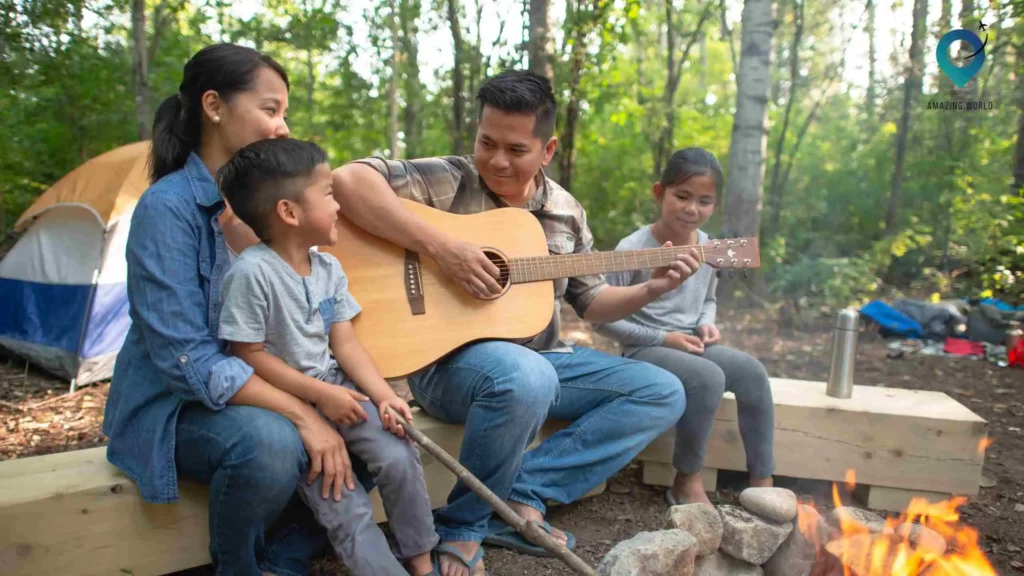
Camping provides an ideal setting for families to bond and create lasting memories together:
Quality Time: Camping allows families to spend quality time away from the distractions and busyness of everyday life. With fewer commitments and no screens, you can engage in meaningful activities and conversations.
Shared Responsibilities: Setting up camp, cooking meals, and organizing activities all require teamwork. These shared responsibilities encourage cooperation and communication among family members.
Building Trust: Facing the challenges of camping together, such as navigating unfamiliar terrain or dealing with unexpected weather conditions, can build trust and resilience within the family unit.
Creating Traditions: Camping trips can become cherished family traditions. Whether it’s an annual summer camping excursion or a weekend getaway, these traditions provide a sense of continuity and shared history.
Teaching Life Skills: Camping teaches valuable life skills, from outdoor survival techniques to basic first aid. Parents can pass on their knowledge to children, fostering self-sufficiency and confidence.
Nature Education: Camping offers a hands-on nature education experience. Families can learn about local flora and fauna, ecosystems, and environmental conservation together.
Unplugged Time: Camping often involves a break from screens and electronic devices. This unplugged time allows families to connect without digital distractions.
Storytelling and Creativity: Gathered around the campfire, families can share stories, sing songs, or engage in creative activities. These moments create a strong sense of togetherness and creativity.
Outdoor Activities: Camping provides opportunities for outdoor adventures such as hiking, fishing, and stargazing. These shared experiences create lasting memories and strengthen family bonds.
Problem Solving: Camping may present challenges, such as adverse weather or unexpected situations. Facing and resolving these challenges together can teach problem-solving skills and resilience.
10. Improved Problem-Solving Skills
Camping provides opportunities to enhance your problem-solving abilities in various ways:
Adapting to Changing Conditions: The outdoors can be unpredictable. Weather conditions can shift, and unexpected situations may arise. Camping encourages adaptability and quick thinking as you navigate these changes.
Resource Management: When camping, you must manage limited resources such as food, water, and fuel. Learning to ration and make the most of what you have fosters resourcefulness.
Navigation and Orientation: Hiking and exploring in the wilderness often require navigation skills. You may use maps, compasses, or even celestial navigation techniques to find your way. These skills sharpen your problem-solving abilities.
Campsite Setup: Setting up a campsite involves strategic decisions, like choosing a suitable location, arranging tents, and building a fire. Problem-solving comes into play when you encounter obstacles or need to adapt to the environment.
Cooking and Meal Preparation: Preparing meals outdoors can present challenges. You might need to improvise with limited cooking equipment or adapt recipes based on available ingredients, enhancing your culinary problem-solving skills.
Emergency Response: In rare cases, emergencies can occur while camping. Knowing how to respond to situations like injuries or sudden weather changes requires quick decision-making and problem-solving under pressure.
Mechanical Repairs: Camping equipment can sometimes malfunction. Whether it’s fixing a broken tent pole or addressing a camp stove issue, troubleshooting and repairs are essential problem-solving tasks.
Teamwork and Communication: When camping with others, effective teamwork and communication are crucial for solving challenges collaboratively. Clear communication ensures everyone is on the same page when addressing issues.
Wildlife Encounters: Knowing how to handle wildlife encounters, such as safely storing food to prevent bear visits, requires problem-solving skills to mitigate potential risks.
Campfire Building: Building and maintaining a campfire for cooking and warmth can be a problem-solving task, especially in adverse weather conditions.
11. Physical Fitness
Camping naturally promotes physical fitness in several ways:
Hiking and Exploration: Camping often involves hiking and exploring the outdoors. These activities provide an excellent cardiovascular workout, improve endurance, and help strengthen leg muscles.
Strength Building: Setting up a campsite, including tasks like pitching tents, gathering firewood, and carrying gear, requires strength and muscle engagement. This functional strength training is an integral part of camping.
Outdoor Activities: Camping destinations offer various outdoor activities such as swimming, kayaking, fishing, or mountain biking. Engaging in these activities improves overall physical fitness and coordination.
Balance and Coordination: Navigating uneven terrain, crossing streams, and climbing hills while camping challenges your balance and coordination, enhancing these skills.
Calorie Burn: Camping often involves physical activities throughout the day, from preparing meals to exploring the surroundings. These activities contribute to calorie burn and can help with weight management.
Nature-Based Exercise: Being surrounded by nature can inspire exercise. You might find yourself doing yoga by the lake, practicing tai chi in a serene forest clearing, or simply enjoying a brisk morning walk.
Functional Fitness: Camping encourages functional fitness, which focuses on movements that mimic real-life activities. This type of exercise improves your ability to perform daily tasks with ease.
Stress Reduction: Physical activity in a natural setting has been shown to reduce stress levels. Camping allows you to unwind and de-stress while staying active.
Improved Sleep: Regular physical activity during camping can contribute to better sleep quality. Quality rest, in turn, supports overall physical health and recovery.
Vitamin D Absorption: Spending time outdoors during camping allows your body to absorb vitamin D from sunlight. This vitamin is essential for maintaining bone health and overall physical well-being.
12. Educational Opportunities
Camping offers valuable educational experiences that can deepen your knowledge and appreciation of the natural world:
Nature Observation: Camping provides a front-row seat to observe the natural world up close. You can study plants, animals, insects, and ecosystems in their natural habitats, fostering a greater understanding of biodiversity.
Environmental Education: Many camping destinations offer interpretive programs and educational materials about local flora and fauna. These resources provide insights into the region’s ecology and conservation efforts.
Astronomy: Camping in remote areas often means clear night skies devoid of light pollution. This creates excellent stargazing opportunities, allowing you to learn about constellations, planets, and celestial events.
Geology: Exploring different terrains while camping can pique your interest in geology. You may encounter interesting rock formations, fossils, or geological features that spark curiosity.
Wildlife Study: Camping provides opportunities to observe wildlife behavior, such as birdwatching or tracking animal prints. Learning about wildlife enhances your appreciation for the delicate balance of ecosystems.
Survival Skills: Camping teaches practical survival skills, such as fire-building, purifying water, and finding edible plants. These skills can be valuable in emergency situations.
Leave No Trace Principles: Camping often involves practicing Leave No Trace principles, which teach responsible outdoor ethics. You learn how to minimize your impact on the environment, promoting sustainability.
History and Culture: Some camping areas have historical or cultural significance. You can learn about indigenous cultures, early explorers, or historical events by camping in these locations.
Map Reading and Navigation: Camping often requires map reading and navigation skills. You learn to use maps, compasses, and GPS devices, fostering a sense of direction and spatial awareness.
Botany: Camping allows you to connect with plants and trees, identifying various species and understanding their ecological roles. Learning about plant life can be fascinating and educational.
13. Social Connection
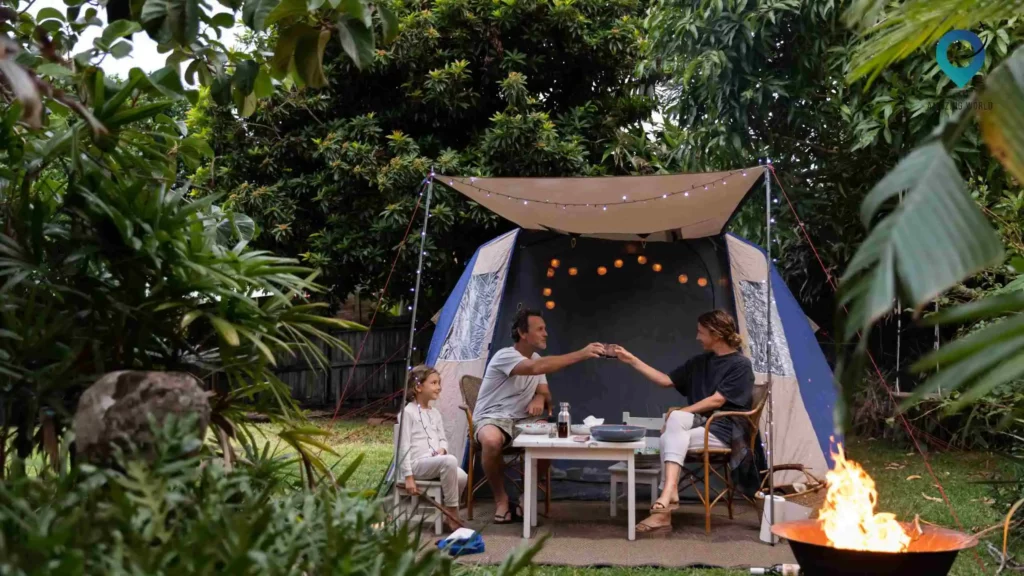
Camping encourages social connection and strengthens relationships in various ways:
Quality Time with Loved Ones: Camping provides an opportunity to spend quality time with family and friends, away from the distractions of daily life. Whether gathered around a campfire or sharing meals, these moments foster deeper connections.
Shared Experiences: Camping involves shared experiences like setting up camp, cooking together, and exploring the outdoors. These shared activities create lasting memories and strengthen bonds.
Teamwork and Cooperation: Camping often requires teamwork and cooperation, whether it’s setting up a tent, planning meals, or navigating the wilderness. These collaborative efforts improve communication and strengthen relationships.
Digital Detox: Camping often means disconnecting from screens and digital devices. This break from technology encourages face-to-face interactions and meaningful conversations.
Building New Friendships: Camping can also be an opportunity to make new friends. Campgrounds and outdoor activities bring together people with shared interests, making it easier to connect with like-minded individuals.
Conflict Resolution: Camping may present challenges or unexpected situations. These moments provide opportunities to practice conflict resolution and problem-solving skills within a group.
Creating Traditions: Repeated camping trips can become cherished traditions among friends and family. These traditions create a sense of continuity and strengthen social bonds.
Shared Meals: Preparing and sharing meals while camping fosters a sense of togetherness. Campfire cooking or picnic-style dining encourages social interaction.
Storytelling and Bonding: Gathered around a campfire or in a cozy tent, people often share stories, sing songs, or engage in deep conversations. These moments of storytelling and bonding create lasting connections.
Support Network: Camping with a group provides a built-in support network. In case of emergencies or unexpected challenges, you have a group of people to rely on.
14. Mindfulness and Stress Reduction
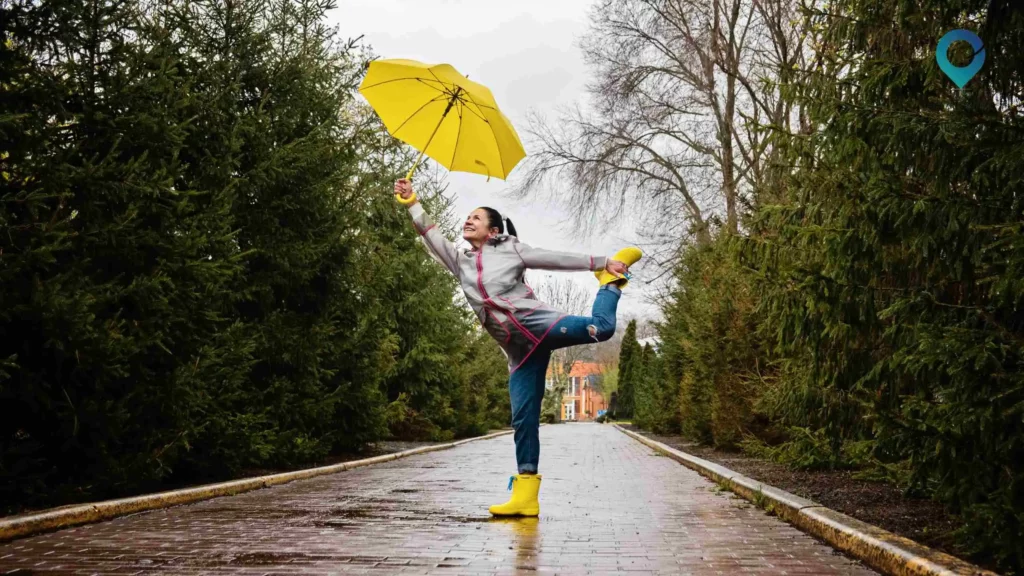
Camping provides an ideal environment for practicing mindfulness and reducing stress:
Disconnecting from Everyday Stressors: Camping allows you to temporarily disconnect from the stressors of everyday life, including work, deadlines, and responsibilities. This break provides a mental reset.
Natural Calmness: The natural setting of campgrounds often promotes a sense of calmness. The rustling leaves, flowing water, and bird songs create a serene atmosphere conducive to relaxation.
Mindful Observation: Camping encourages mindfulness by inviting you to fully immerse yourself in the present moment. You become attuned to the sights, sounds, and sensations of the outdoors.
Reduced Screen Time: Camping typically involves a break from screens and digital devices. This reduction in screen time allows you to be more present and reduces the stress associated with constant digital connectivity.
Physical Activity: Engaging in outdoor activities while camping, such as hiking or swimming, promotes physical well-being. Exercise is a natural stress reliever, releasing endorphins that boost mood.
Campfire Meditation: Many campers find peace and relaxation by gazing at a campfire. Watching the flames dance and feeling the warmth can be a form of meditation that calms the mind.
Time for Reflection: Camping provides ample time for reflection. Whether sitting by a riverbank or lying under the stars, you have the opportunity to contemplate and gain perspective.
Breathing Fresh Air: Camping offers the chance to breathe fresh, clean air. Deep, clean breaths can reduce stress and promote relaxation.
Digital Detox: The break from digital devices during camping allows you to escape the constant notifications and information overload that contribute to stress.
Unplanned Moments: Camping often involves unplanned moments and surprises. Embracing the unpredictability of the outdoors can help you let go of the need for constant control and planning.
15. Improved Sleep Quality
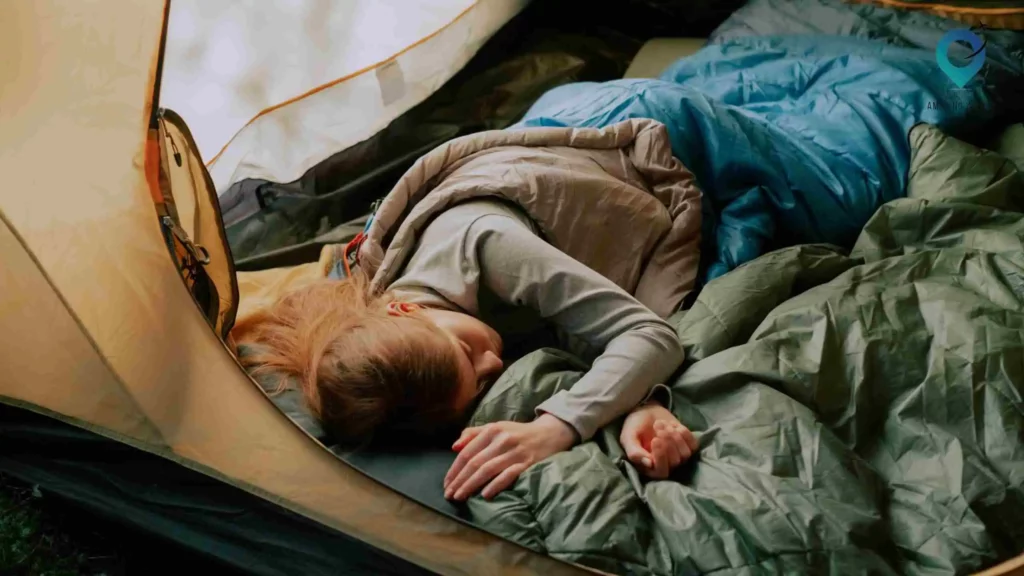
Camping can significantly improve the quality of your sleep in various ways:
Natural Sleep Patterns: Camping often aligns your sleep patterns more closely with natural circadian rhythms. Without artificial lighting, you’re more likely to go to bed earlier and wake up with the sunrise, which can improve sleep quality.
Reduction in Artificial Light: Camping minimizes exposure to artificial light sources such as screens and indoor lighting, allowing your body to produce melatonin, a hormone that regulates sleep.
Fresh Air: The crisp, fresh air of the outdoors can improve respiratory function, helping you breathe more easily and deeply while you sleep.
Physical Activity: Engaging in physical activities during the day, like hiking or swimming, can promote better sleep by helping you feel physically tired and ready for rest at night.
Reduction in Noise Pollution: Camping in nature typically means less noise pollution from traffic, sirens, and urban sounds. The tranquility of the outdoors creates a quieter sleeping environment.
Comfortable Sleep Surfaces: Modern camping gear includes comfortable sleeping pads and sleeping bags designed for restful sleep, ensuring you’re well-supported and insulated from the ground.
Connection to Nature: Being surrounded by nature can reduce stress and anxiety, leading to a more peaceful state of mind conducive to better sleep.
Synchronization with Natural Light: Exposure to natural light during the day helps regulate your body’s internal clock, promoting better sleep at night.
Mindful Relaxation: Camping encourages mindfulness and relaxation. Activities like stargazing, listening to the sounds of nature, or simply lying in a hammock can help you unwind and prepare for a restful night’s sleep.
Reduced Screen Time: Camping often involves a break from screens and electronic devices, reducing exposure to blue light that can interfere with melatonin production and disrupt sleep.
Conclusion
Camping is a multifaceted experience that offers a treasure trove of physical, mental, and emotional benefits. It’s a journey that takes us away from the hustle and bustle of our daily lives and immerses us in the embrace of the natural world. From the physical fitness gained through outdoor activities to the enhanced creativity inspired by nature’s beauty, camping rejuvenates our body and mind. Moreover, it’s a powerful medium for forging connections—with the environment, with loved ones, and with ourselves.
As we unplug from technology, we discover the art of mindfulness and the soothing balm of reduced stress. Educational opportunities abound in the wilderness, and problem-solving becomes second nature in the face of outdoor challenges.
Furthermore, camping strengthens our bonds with family and friends, creating lasting traditions and memories. It instills valuable life skills and nurtures an appreciation for the intricate web of life on Earth. As we gaze at starlit skies, listen to the whispers of the forest, and share stories by the campfire, we find solace in mindful relaxation and experience the joy of social connection.
How much did you like Our detailed Benefits of Camping | Why Camping Is Good for You? Review Also, please share these Blogs with your friends on social media.
Related Article –
- Road Trip With Kids
- Cinematic Travel Videography
- Sunset Photography
- Vintage Travel Photography
- Camping vs Glamping
- Luxury Glamping 101

Meet David Hoper, a passionate travel Blog writer with 7+ years of experience in travel content. Through his exemplary storytelling and engaging narratives, he shares his experiences and brings destinations to life. With a keen eye for detail and a love for exploration, he has cultivated a diverse portfolio of travel blogs that inspire and inform readers worldwide.
